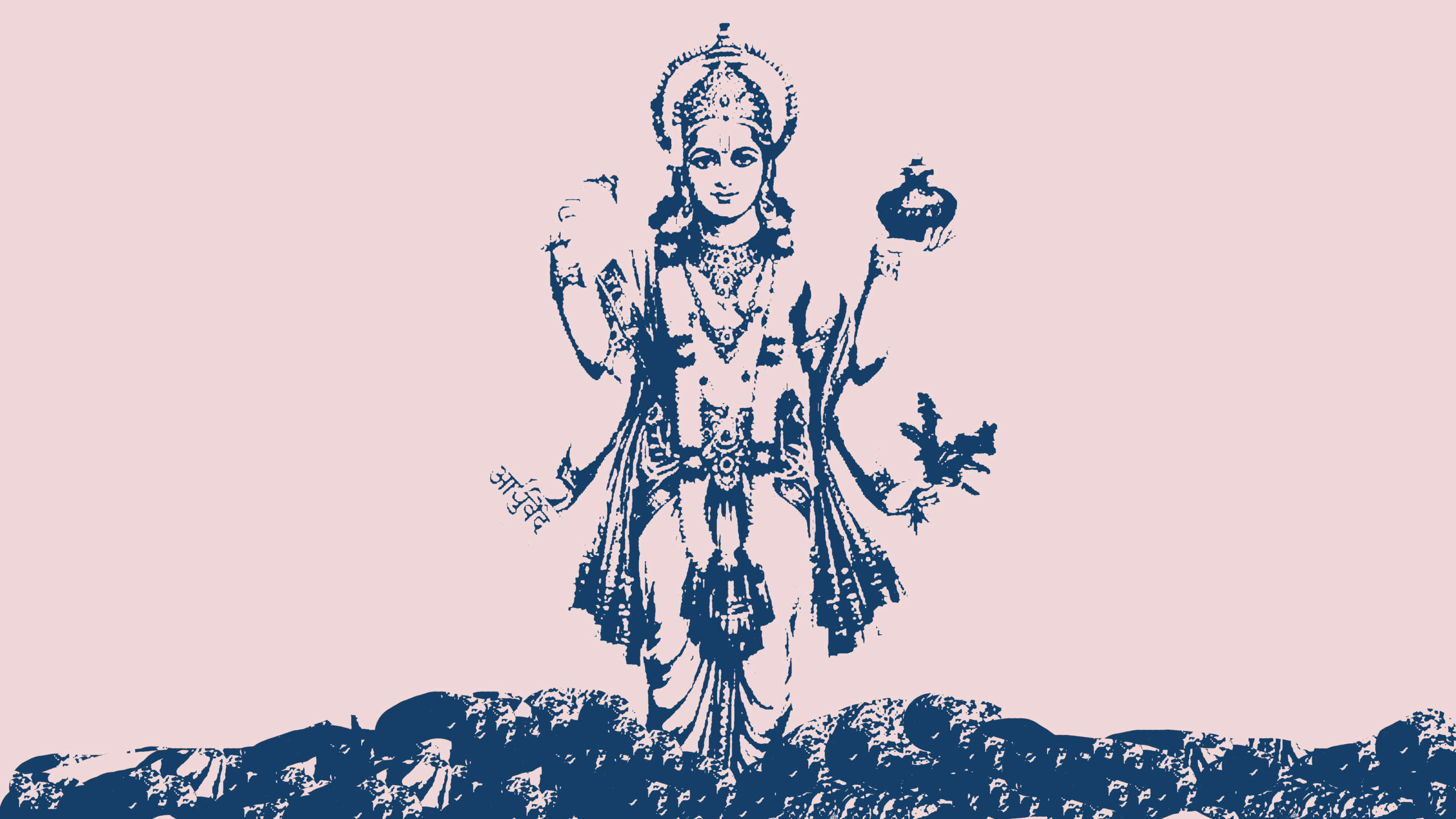Thrayodashi, known as Dhan Teras, Dhanvantari Day or Dhanya Thrayodashi. They all have different significance. Dhanteras is the day on which lord Dhanvatri appeared during Samudra Manthan with the knowledge of Ayurveda and nectar.
By Mala Kapadia, Professor, Director of Wellness Practice & Resident Mentor
Deepawali festivities are in the air. For many, this begins on Ekadashi, the 11th Lunar day of Ashwin month. The next day, 12th day or Dwadashi has queer interpretations as it is celebrated as worship and celebration of Vak or Speech, Vagh or Tiger and Vasu or Cows. This reflects how rich our Indian traditions have been, all-inclusive and integrative. The third day is Thrayodashi, known as Dhan Teras, Dhanvantari Day or Dhanya Thrayodashi. They all have different significance. Dhan is wealth.
This is the day one worships the wealth, which shows gratitude and expresses appreciation of the wealth by pooja. Dhanya name is derived from Jain tradition, when on this day 24th Tirthankara, Mahavir, gave his last sermon and left the body attaining liberation. Jains celebrate this day with Dhyana, meditations and pooja to achieve the same for themselves.
This is the day when Lord Dhanvantari had appeared during the Samudra manthan with nectar or Amrit in His hands. Hence, Ayurveda practitioners also celebrate this day as Dhanvantari Day or Ayurveda Day. Samudra Manthan is seen as mythological happening where the devas and asuras were churning the Great Ocean with Vasuki Naga to achieve Nectar or Amrit. However, before Amrit can come, 14 auspicious jewels came out, including poison that could have destroyed the Universe.
Finally, Dhanvantari, the incarnation of Vishnu appears with nectar in His hands. I am tempted to write here about research in Psychoneuroimmunology by Candace Pert. Her work reveals the true significance of what we see as mythology and miss out on the deeper significance related to our health. Candace Pert has done path-breaking research on the mind-body connection and the role of the spinal cord in our body. According to her, we store our emotional energy that is suppressed at the base of our spinal cord. These are the emotional memories that we have not dealt with and are unprocessed or repressed. The memory wishes to come to consciousness by rising up in the spinal cord through the autonomous nervous system. However, if the brain is not ready to deal with this consciously, it strives to push this back. Hence, our spinal cord actually becomes a war zone between the conscious and sub or unconscious. The Vasuki Naga that was used to churn the Great Ocean, can that be a symbol of our own spinal cord? The Great Ocean is our own consciousness? And the nectar that comes, at last, is our own health and healing when all the repressed energy is processed and dealt with. For me, this is an insight that allows me to merge my individual consciousness with the Cosmic consciousness.
On a more worldly level, The Ayurveda Day is being observed every year from 2016, on the day of Dhanvantari Jayanti. This year it falls on 13th November 2020. This year Ayurveda Day would be observed under the theme of “Ayurveda for COVID-19”.
The Objective of Ayurveda Day is to focus on strengths of Ayurveda and its unique treatment principles, to work towards reducing the burden of disease and related mortality by utilising the potential of Ayurveda, to tap into the potential of Ayurveda to contribute towards National Health Policy and National Health programmes, and to promote Ayurvedic principles of healing in society. Thus, Ayurveda Day is more an occasion of re-dedication to the profession and the society, than one of festivities or celebrations.
This year, though it is not yet declared as World Ayurveda Day like the World Yoga Day, the celebrations are happening in 70 plus countries. The pandemic times have made us take a pause and review our lifestyle. Ayurveda as a science of life and longevity is taking centre stage in healthcare.
Rashtram wishes every being a healthy and happy life…
लोका: समस्ता: सुखिनो भवन्तु

